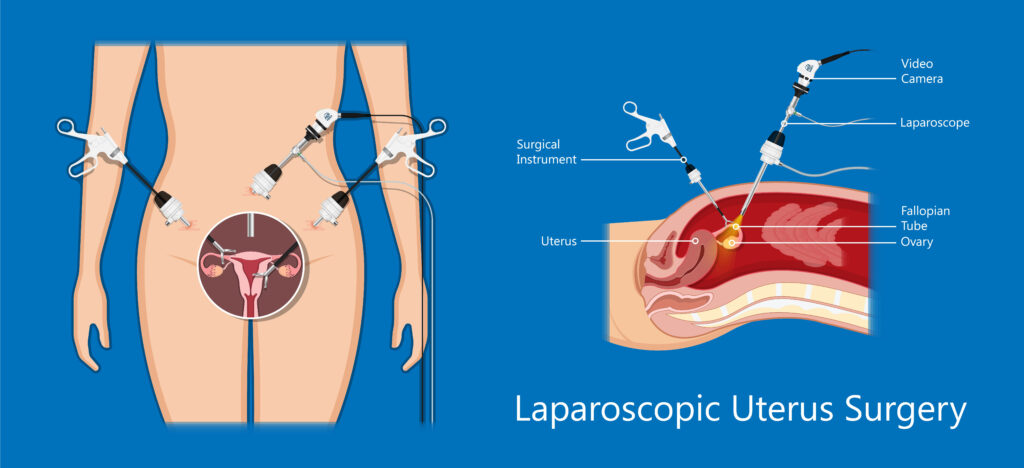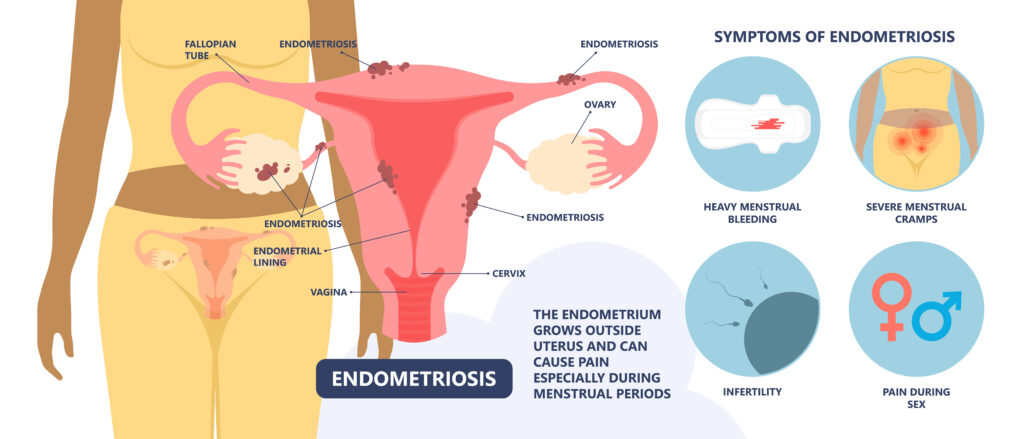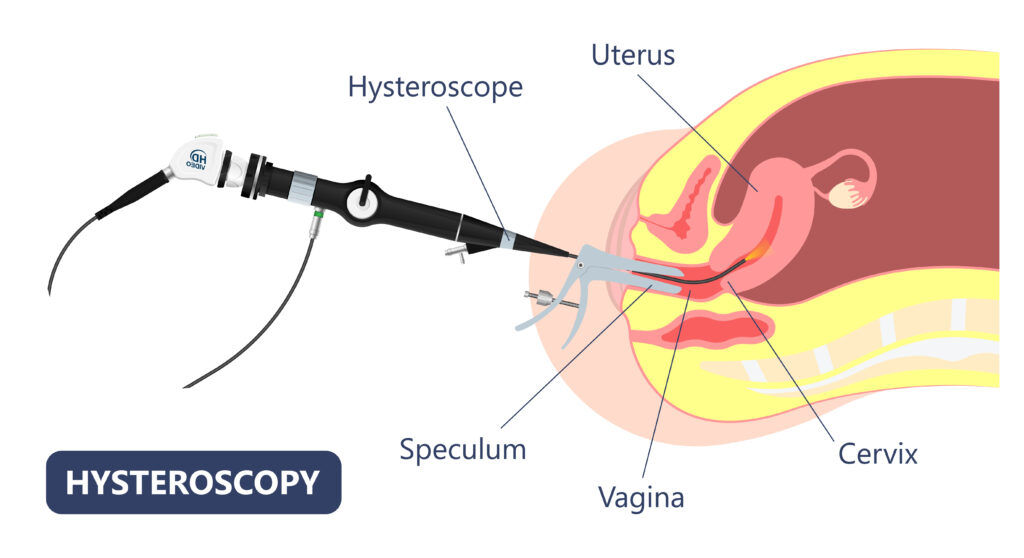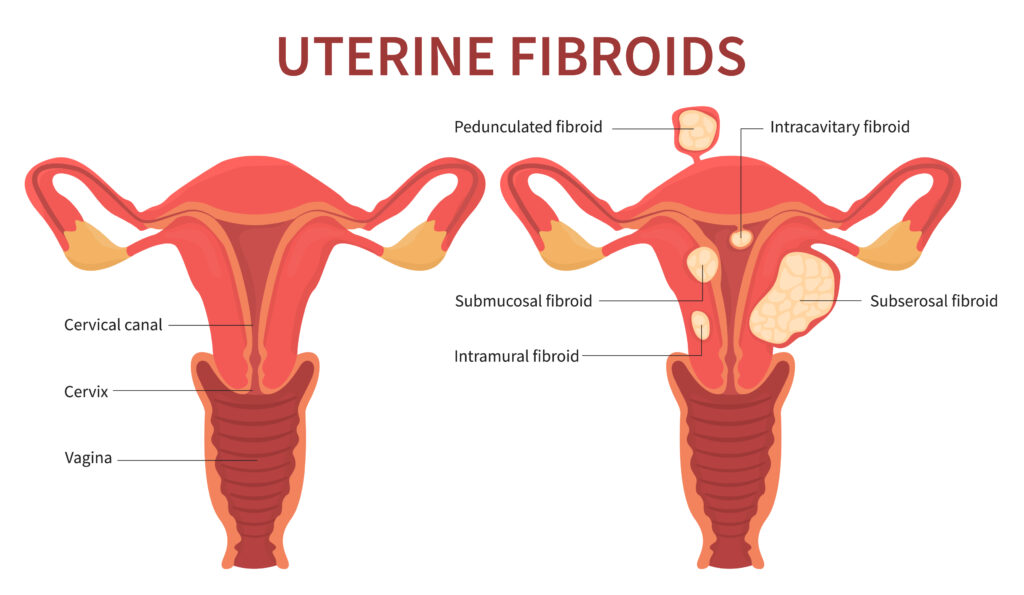Category: All Services
Infertility (IVF) Treatments
Having a family is an exciting adventure. However, the process to get there may be different if infertility
issues are blocking your path. Fortunately, the right doctor can help you discover the right infertility (IVF)
treatments for you.
So, don’t get discouraged! There are treatments available that have helped millions achieve their dream
of having a baby. Keep reading to learn more!
Why Does Infertility Mean?
Infertility is defined as the inability to conceive a child after regular, unprotected intercourse for one year
(or six months for individuals over 35).
What Causes the Condition?
Hormonal imbalances, reproductive system disorders, genetic factors, age-related decline in fertility,
lifestyle choices, environmental factors, and certain medical conditions or treatments can all contribute.
Identifying the specific cause determines the appropriate treatment options and improves chances of
conception.
How Is Infertility Diagnosed?
A comprehensive medical evaluation with a reputable provider is needed to diagnose infertility causes.
This includes physical exams, medical history assessments, and various tests such as semen analysis,
hormonal testing, ultrasound imaging, and ovulation tracking for both partners.
A confirmed diagnosis allows for tailored treatment plans to improve your chances of conception.
How Do I Prepare for Infertility (IVF) Treatments?
Readying your body and mind for IVF is essential for desired outcomes.
Begin by maintaining a healthy lifestyle that includes a nutritious diet, regular exercise, and managing
stress. If you smoke, this is the time to quit. Limiting alcohol intake is also crucial.
Take prescribed prenatal vitamins containing folic acid to support reproductive health.
Attend counseling sessions to prepare emotionally for the process. You can also learn stress
management techniques to help you better cope.
Lastly, stay informed and actively involved in your treatment plan. Always communicate openly with your
fertility team to ensure you are well-prepared physically, emotionally, and mentally.
What Can I Expect During Infertility (IVF) Treatments?
The truth is, the process is a bit complex, and patience is key. The road to parenthood may seem long,
but it is well worth the wait!
The following is a general guideline of what is involved in IVF treatment:
- Initial consultation: Meet with a fertility specialist to discuss medical history, perform diagnostic
tests, and develop a personalized treatment plan. - Ovarian stimulation: Take fertility medications to stimulate the ovaries to produce multiple eggs.
- Monitoring: Undergo regular monitoring through blood tests and ultrasound to assess hormone
levels and follicle growth. - Egg retrieval: When follicles are mature, undergo a minor surgical procedure to retrieve eggs
from the ovaries. - Fertilization: Eggs are fertilized with sperm in a laboratory setting using conventional IVF or
intracytoplasmic sperm injection (ICSI). - Embryo culture: Monitor embryo development in the laboratory for several days until they reach
the desired stage. - Embryo transfer: Transfer one or more embryos into the uterus through a catheter, typically 3-5
days after egg retrieval. - Luteal phase support: Take medications to support the uterine lining and embryo implantation.
- Pregnancy test: Undergo a blood test approximately two weeks after embryo transfer to
determine if pregnancy has occurred.
How Effective Are Infertility (IVF) Treatments?
The success of in vitro fertilization is dependent on various factors, most notably the woman’s age.
Younger individuals typically exhibit better outcomes due to superior egg quality.
Obesity and lifestyle habits such as smoking impact treatment efficacy. In addition, embryo quality, clinic
expertise, IVF protocol, and uterine receptivity play pivotal roles in the outcome.
Am I a Good Candidate for Infertility (IVF) Treatments?
You need to schedule a consultation with a reputable fertility specialist to determine whether you’re a
good candidate for in vitro fertilization. Upon completion of a medical evaluation and tests, you can
receive a personalized recommendation regarding your options.
Where Is the Best Place to Go for Infertility (IVF) Treatments?
Our team of board-certified doctors at Annandale Ob-Gyn offer comprehensive solutions alongside
lifelong care.
If you’re interested or have any questions regarding our IVF services, Annandale Fertility is here – just
click to learn more!
Laparoscopic Uterine Surgery


What is a uterine laparoscopy?
A procedure in which a hysteroscope is placed into the uterine cavity through the cervix. Laparoscope. A thin, lighted telescope-like viewing instrument that is inserted through the navel and abdominal wall to examine the female reproductive organs and abdominal cavity during laparoscopy.
Endometriosis


A common condition, endometriosis is a painful condition that can impact your everyday life. When you have endometriosis, tissue similar to the lining of the uterus grows in other places within your abdomen and pelvic area. Endometriosis can cause painful and heavy periods, as well as fertility issues.
Hysteroscopy


A hysteroscopy is a procedure used to examine the inside of the womb (uterus). It’s carried out using a hysteroscope, which is a narrow telescope with a light and camera at the end. Images are sent to a monitor so your doctor or specialist nurse can see inside your womb. The hysteroscope is passed into your womb through your vagina and cervix (entrance to the womb), which means no cuts need to be made in your skin.When a hysteroscopy may be carried out A hysteroscopy can be used to: investigate symptoms or problems – such as heavy periods, unusual vaginal bleeding, postmenopausal bleeding, pelvic pain, repeated miscarriages or difficulty getting pregnant diagnose conditions – such as fibroids and polyps (non-cancerous growths in the womb) treat conditions and problems – such as removing fibroids, polyps, displaced intrauterine devices (IUDs) and intrauterine adhesions (scar tissue that causes absent periods and reduced fertility) A procedure called dilatation and curettage (D&C) used to be commonly used to examine the womb and remove abnormal growths, but nowadays hysteroscopies are carried out instead.
Uterine Fibroids


Uterine fibroids are a common type of noncancerous tumor that can grow in and on your uterus. Not all fibroids cause symptoms, but when they do, symptoms can include heavy menstrual bleeding, back pain, frequent urination and pain during sex. Small fibroids often don’t need treatment, but larger fibroids can be treated with medications or surgery.
Emergency Vaginal Bleeding Services
Emergency Vaginal Bleeding Services in Annandale
Abnormal or emergency vaginal bleeding refers to any type of menstrual or non-menstrual bleeding that is excessive, sudden, or seemingly has no cause. There are many causes for bleeding that is considered abnormal or warrants an emergency visit to your OB/GYN, including but not limited to:
- Blood thinning medications
- Cancer
- Contraceptive pills or injections
- Cysts
- Fibroids
- Hormone replacement therapy
- Infection
- Intrauterine devices, such as IUDs
- Polyps
- Pregnancy
- Trauma
- Uterine scarring
These are just some of the examples of what can contribute to heavy or prolonged menstrual bleeding, as well as abnormal uterine bleeding.
When Should I Receive Emergency Vaginal Bleeding Services?
It’s always better to be safe than sorry when it comes to your health, especially when any form of blood loss is involved, no matter how heavy or how light. You should receive care if the bleeding has been excessive or chronic and you can’t figure out what could be contributing to it.
Additional reasons why you should receive treatment as soon as possible if you’re experiencing emergency vaginal bleeding is when it’s combined with other symptoms.
These symptoms include pain or pressure in your pelvic region, passage of blood clots that are the size of a quarter or larger, dizziness or fainting, low blood pressure, weakness, bloating, tender breasts, or signs of anemia.
Ultimately, it’s never too soon or too late to take control of your health and find answers for any abnormalities that you struggle with.
How Do I Prepare for Emergency Vaginal Services?
There isn’t a lot of preparation you have to do before you visit your care provider or the emergency room if bleeding is particularly severe, painful, or life threatening.
What’s most important is that you keep track of when the bleeding started, how long it continues, type of blood (heavy and dark red versus spotty and pink), and other symptoms. Additionally, know your medical records and current medications or supplements on hand, as certain medications and health conditions can cause or contribute to abnormal uterine bleeding.
What Should I Expect During an Emergency Visit?
During your visit, you can expect to have a discussion about the aforementioned issues, and then receive a pelvic examination. Further testing or exams may be required if a consultation and standard pelvic or cervical exam isn’t enough.
You might receive a blood test, pregnancy test, pelvic ultrasound, hormone levels test, endometrial biopsy, and / or hysteroscopic exam. Once a diagnosis is made, you and your practitioner will discuss options for treatment and / or long-term management depending on your diagnosis.
Fortunately, there are many options for treating emergency vaginal bleeding, such as contraceptive pills, hormone therapy, hysteroscopy, myomectomy, endometrial ablation, or partial / total hysterectomy in severe cases. Sometimes, the solution is as simple as over-the-counter medications.
Am I a Good Candidate for Emergency Vaginal Bleeding Services?
Anyone is a good candidate for receiving medical attention for their emergency or abnormal vaginal bleeding, however patients should keep in mind that not all “abnormal” bleeding is truly that abnormal, especially if you’re undergoing perimenopause, taking birth control pills, and other typically benign causes.
Young girls who have recently gotten their first menstrual period may also experience abnormal, irregular, or changes in their menstruation as their hormones adapt and their body finds their natural cycle.
If you’re concerned, call your women’s healthcare provider and ask whether your situation warrants immediate care.
Where Is the Best Place to Get Emergency Vaginal Bleeding Services in Annandale?
Become a patient at Annandale Ob-Gyn for answers and personalized solutions for your abnormal or emergency vaginal bleeding today! We prioritize providing exceptional quality care and a comfortable, safe environment for all of our patients.
Contact us at 703-642-7522 to schedule your appointment!
Immediate Care Symptoms
Immediate Care Symptoms in Annandale
Women can experience a myriad of symptoms, and it’s sometimes difficult to know whether or not they require immediate care or not. While you should always contact your gynecologist when in doubt, it’s good to have an idea of what is really an emergency and what isn’t.
Immediate Care Issues You Should Know About
Medical conditions like yeast infections and bacterial vaginosis are quite common. They can be uncomfortable and difficult to handle. They also can have the same symptoms as more serious conditions.
If you experience any of the following, it’s best to seek immediate care:
- Constant need to urinate
- Pain and / or burning during urination
- Pelvic pain and / or abdominal pressure
- Vaginal bleeding
- Vulvar or vaginal itching
- Unusual discharge
Experts suggest you call your regular gynecologist first, as they may be able to make a same-day appointment for you. What you should not do is try to treat symptoms on your own.
As mentioned, common conditions like yeast infections and bacterial vaginosis can mimic symptoms of other more serious problems. As an example, a yeast infection causes itching and burning that is similar to an STD that you certainly do not want to leave diagnosed.
It’s always better to leave testing and treatment to medical professionals, and you are encouraged to not delay medical care. There are conditions that can lead to additional health problems if left untreated.
A Special Note About Vaginal Bleeding and Pregnancy
Spotting or light bleeding during pregnancy can be normal during the first trimester. It commonly occurs when the embryo implants itself in your uterus. Cervical changes and sex can also cause normal light bleeding.
There are times when bleeding during pregnancy is not normal and you should seek immediate care. A miscarriage is a pregnancy that ends on its own within the first 24 weeks of pregnancy, though they frequently occur within the first 12 weeks.
Symptoms of a miscarriage include abdominal pain, discharge of tissue from your vagina, and bleeding that’s more than just spotting. If you experience any of those symptoms, contact your OB/GYN to seek immediate care or go to the emergency room if you’re unable to get ahold of your doctor.
You need a pelvic exam to diagnose a miscarriage. You might also need an ultrasound. Your immediate care gynecologist might also request that you have other testing such as blood or tissue tests.
Another pregnancy concern is ectopic pregnancy. This occurs when the embryo implants outside of the uterus. This is a serious condition and requires that the egg be removed either surgically or with medication.
There are some pregnancy situations that can be life threatening. You should call 911 if you experience pain (especially on one side of your abdominal area), vaginal bleeding, discomfort during urination or a bowel movement, loss of consciousness, and / or seizures.
Virtual Visits Can Really Help You Quickly Get the Care You Need
There are times when a car trip to an immediate care facility simply isn’t possible. Maybe you live in a rural area or you don’t have a car and can’t find a ride. If you are not experiencing an emergency, find out if virtual visits are possible.
Virtual gynecologist visits are convenient and comfortable. They keep you safe at home and away from potentially contagious illnesses. If you have a family member at home with you, that’s another set of ears to help you remember instructions given to you by your gynecologist.
Before scheduling a virtual visit for immediate care symptoms, make sure your insurance covers the cost. If not, find out about payment methods and when you will be required to pay.
Urgent Care vs. Your Gynecologist: Know When to Get Advice From the Experts
Many gynecologists offer after-hours immediate care. If not and you have to go to a separate urgent care facility, keep in mind you still need to follow up with your gynecologist. It should be noted that most separate urgent care facilities will not send medical records to your gynecologist and you’ll likely have to make that request.
An urgent care doctor will not be specially trained to deal with women’s healthcare symptoms and issues. Your gynecologist is the one who you can trust to get to the root of the problem. They understand the health needs of women on a level other doctors do not.
Also, please remember there is no substitute for regular checkups with your gynecologist. This is the best way for you to stay healthy and on top of your own medical care.
If You Need Immediate Care in Annandale, Contact Annandale Ob-gyn Today!
Our providers at Annandale Ob-gyn all share the same mission: to provide the highest quality healthcare for all women. We deliver personalized care with the utmost respect.
Many services are available right inside our state-of-the-art facility. This includes diagnostic testing, an in-house lab, and even some surgeries.
If you are experiencing women’s healthcare symptoms, we make it easy to connect with a doctor any time of the day or night. Simply visit our site and click on ‘Get Care Now’ to learn more about your options. If you’d like to call and schedule an appointment, please contact us at 703-642-7522.
At Annandale Ob-gyn, you are more than a symptom. You are an individual with specific symptoms and needs that deserve attentive care. We want you to know we will support you on every step of your wellness journey!






